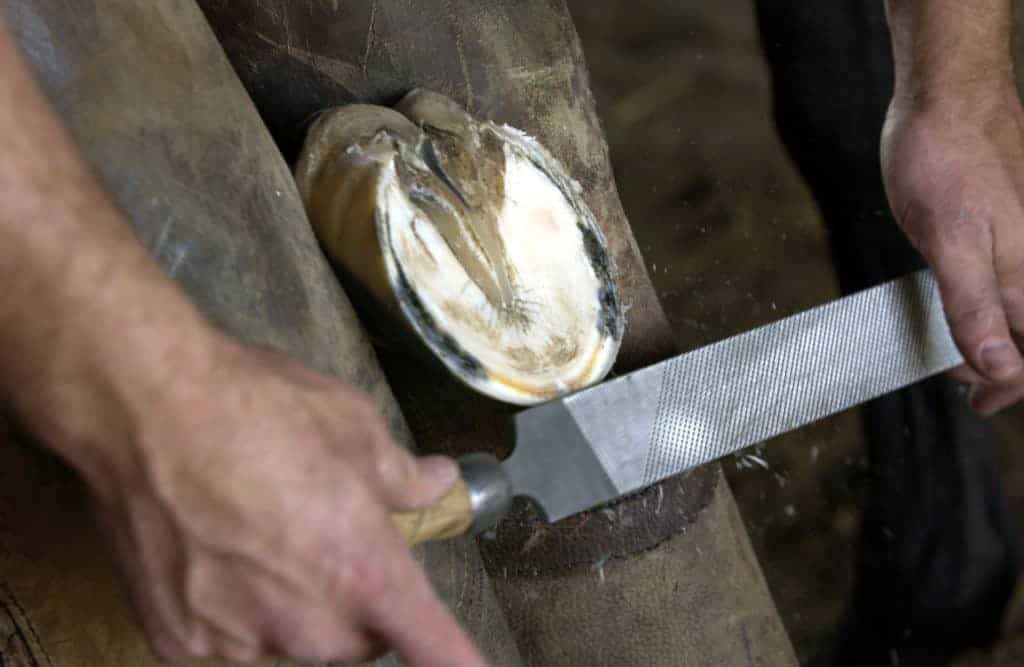
Advances in Equine Joint Pain Management
One researcher evaluated pharmacologic methods of osteoarthritis management and recent pain control advances.
News and issues for equine health professionals

One researcher evaluated pharmacologic methods of osteoarthritis management and recent pain control advances.

Instructor and farrier Chris Gregory, CJF, FWCF, answers a reader’s question about trimming horses’ hooves too short during the 2012 International Equine Conference on Laminitis and Diseases of the Foot.

Dr. Nora Grenager answers a user’s question about the human correlate of laminitis at the 2012 International Equine Conference on Laminitis and Diseases of the Foot. The answer might surprise you.

Veterinarian and farrier Dr. Raul Bras answers a user’s question concerning broodmares and laminitis at the 2012 International Equine Conference on Laminitis and Diseases of the Foot.

Dr. James Orsini shares the importance of bringing vets and farriers together to discuss laminitis at the 2012 International Equine Conference on Laminitis and Diseases of the Foot.

Exercising foals helps condition articular cartilage and delay future joint disorders, one veterinarian says.

Dr. Nora Grenager answers a reader’s question about making medications more palatable for laminitic horses on restricted diets from the 2012 International Equine Conference on Laminitis and Diseases of the Foot.

More than 6,000 equine veterinarians, students, technicians, trade show exhibitors, and guests will gather Dec. 1-5 for the 2012 American Association of Equine Practitioners (AAEP) convention in Anaheim, Calif. Here’s a preview of the presentations.

R. Reid Hanson, DVM, Dipl. ACVS, ACVECC, of Auburn University’s College of Veterinary Medicine discusses the treatment of burn injuries in horses.

This year’s event features a horse owner program covering advancements in laminitis research and more.

Topical cisplatin chemotherapy yielded promising results for treating canker in a small trial.
This year, the symposium will focus on “the latest techniques and topics for the reproduction veterinarian.”
Mike Donahue, PhD, received an award for excellence in diagnostic veterinary microbiology.

“Learning theory” research could help keep vets safer when working with difficult equine patients.

Researchers are taking the next step and asking questions about the information the equine genome contains.

Dr. Richard Newton of the Animal Health Trust, in Newmarket, U.K., describes how countries prevent emerging equine diseases and how horse owners and veterinarians can help.
Stay on top of the most recent Horse Health news with
"*" indicates required fields